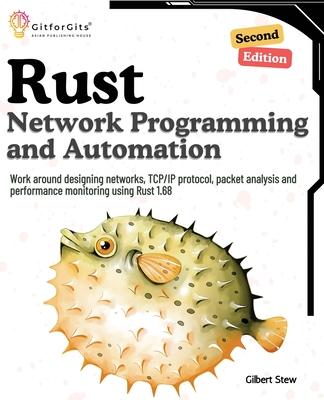Designed with the needs of those interested in network programming and automation in mind, this updated "Rust for Network Programming and Automation" explores the realism of network programming using Rust 1.68. The book covers important topics like IP addressing, subnetting, and gateway configuration, ensuring a thorough understanding of network fundamentals. The chapters cover the use of popular Rust libraries such as Tokio, Mio, and Rust-async for asynchronous network programming. These libraries are thoroughly examined, demonstrating how to create TCP listeners, bind sockets, and handle incoming connections efficiently.
Packet manipulation and analysis are also important topics, with practical examples using libraries like pnet and libtins. You will learn how to capture, process, and analyze network packets to gain an understanding of network traffic and identify potential problems. The book also focuses on network and performance monitoring, showing you how to set up and use various tools to track network availability, utilization, latency, packet loss, and jitter. Understanding these metrics allows you to ensure optimal network performance and reliability. Cloud network configuration, VPN setup, and data center networking are thoroughly covered, providing the necessary knowledge to manage and automate complex network environments.
Key Learnings
- Become fluent in the fundamentals of Rust-based TCP/IP programming.Use the pnet and libtins libraries to capture and analyze packets in depth.Use the Rust-async, Tokio, and Mio libraries to program asynchronous networks efficiently.Be well-versed in IP addressing, subnetting, and configuring gateways to assure a secure network installation.Learn to use Rust and OpenVPN to set up VPN connections and monitoring network availability, latency, and packet loss.Use packet analysis and monitoring to improve network security by identifying threats.
